Infant colic
Experts in physiotherapy and osteopathy
Symptom improvement in 1 to 3 sessions
What is infant colic?
The infant colic is a condition that affects many babies during their first months of life, causing concern and challenges for parents. This phenomenon is characterised by episodes of inconsolable crying and agitation, often associated with abdominal discomfortbut with no obvious medical cause.
Specialists in infant colic We play a crucial role in understanding and managing this condition. First, in our clinics in Cartagena and La MangaIn the case of the baby, we carry out an exhaustive evaluation of the baby by palpation, to find possible adhesions in the digestive system, and at the same time we will diagnose if there is a conflict in the vagus nerve. We will consider factors such as feeding, sleep patterns, and digestive habits. Possible underlying health problems, such as food intolerances or gastro-oesophageal reflux, are also explored.


Fundamental aspects
The feeding plays a crucial role in the assessment of infant colic. It is important to examine the breastfeeding technique or formula used, looking for possible triggers of discomfort.
At Clinica Fisio Camacho in Cartagena and La Manga, We provide guidance to parents on best feeding practices, including infant positioning during breastfeeding and the possibility of adjusting the maternal diet in case of breastfeeding. Another common approach is to assess the possibility of gastro-oesophageal reflux. Here we recommend changes in position during and after feeding, as well as the use of thickened formulas or changes to the breast diet if necessary.
We take care of your baby
Specialist physiotherapy and osteopathy can play an important role. At Camacho Physio Clinic We examine the baby's posture and muscle tone, looking for signs of tension or restrictions that may contribute to discomfort. Using gentle and specific techniques, we help to relieve tension in the baby's musculoskeletal system.
Often, the experience of colic can create stress and anxiety for parents, and guidance on comforting techniques, stress management and adjustments to daily routines can be critical to their wellbeing.
At Clínica Fisio Camacho we improve symptoms in 1 to 3 sessions.


Support to families
The management of infant colic is a collaborative approach that addresses the needs of both the baby and the parents.
At Camacho Physio Clinic We not only focus on alleviating physical symptoms, but also work to improve the quality of life for the whole family. We strive to provide a comprehensive understanding of the factors that contribute to the infant colic and offer practical strategies and support, playing a key role in helping families overcome this transitory but significant challenge.
Frequently asked questions
If you still have questions about infant colic you can read more information in our frequently asked questions or you can contact us by leaving a message through our contact form or by calling our phone number.
We will be happy to answer all your questions.
How do you calm infant colic?
Soothing infant colic can be a challenge, but there are several strategies parents can try to ease their baby's discomfort. Here are some suggestions:
1.-Gentle movement: Strolling in arms or gentle rocking.
2.- Circular abdominal massages on the abdomen.
3.-Warm baths can relax the baby.
4.-Position vertical after feeding.
Use dummies or sucking: Sucking can have a calming effect.
6.-Soft music or white noise can distract the baby and provide comfort.
7.-Stimulus reduction: Keep the environment calm.
8.-Changes in the maternal diet by eliminating foods that may cause discomfort.
If symptoms persist, it is important to seek the advice of a paediatrician or lactation specialist to rule out possible medical problems and get specific guidance. It is essential to remember that each baby is unique and what works for one baby may not work for another. Trying a variety of strategies and observing your baby's response can help you find the most effective approach to relieving colic.
In case of doubts or concerns, it is always advisable to seek the guidance of a health professional.
How do I know if my baby has colic?
It is important to note that these symptoms can vary, and that infant colic is a self-limiting condition that tends to improve over time, usually around 3 to 4 months of age.
However, if you have concerns about your baby's health or if symptoms persist, it is advisable to seek the advice of a paediatrician. The healthcare professional will be able to perform a thorough assessment to rule out other possible causes of discomfort and offer guidance on how to manage and relieve the symptoms of infant colic.
How long does infant colic last?
The duration of infant colic can vary among infants, but is usually seen in infants up to 3 to 4 months of age.
Episodes of infant colic tend to peak around 6 weeks of age and gradually decrease as the baby gets older.
Therefore, many babies experience significant improvement by the end of the third or fourth month. It is important to note that infant colic is a self-limiting condition and that, in most cases, the symptoms will disappear with time.
If you have concerns about the duration of colic or if symptoms persist beyond 4 months, it is advisable to seek the advice of a paediatrician. The healthcare professional can perform a thorough assessment to rule out other possible causes of discomfort and offer guidance on how to manage and relieve the symptoms of colic.

